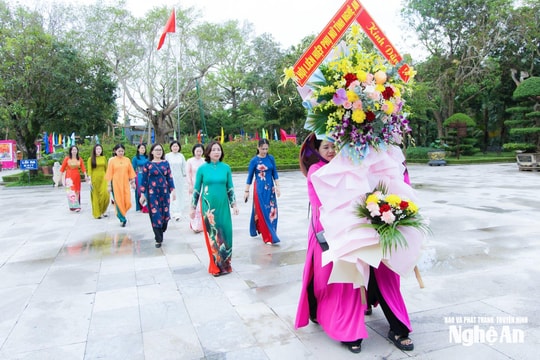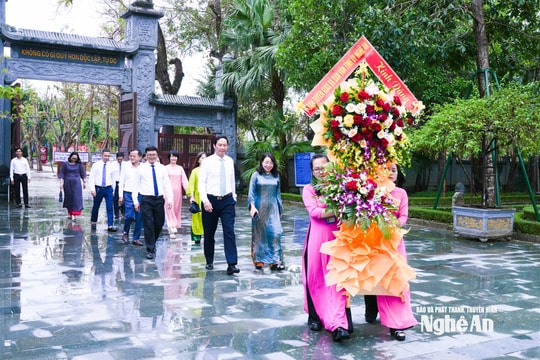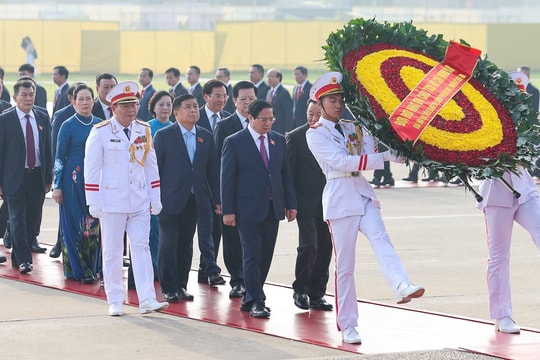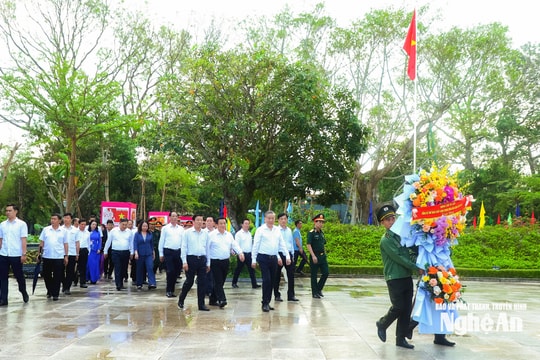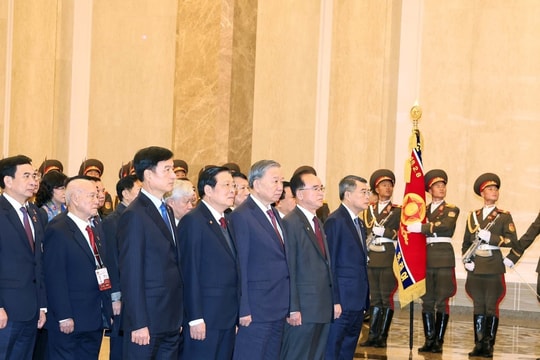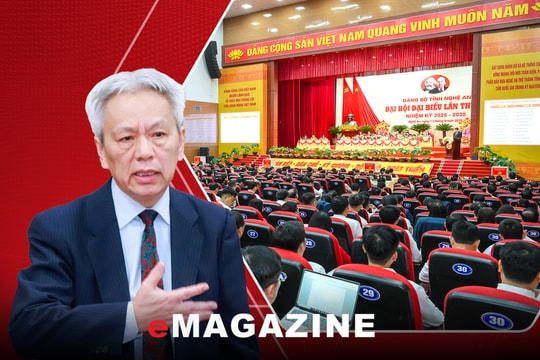Uncle Ho's way of writing and the story of how he named a Hanoi newspaper
(Baonghean.vn) - President Ho Chi Minh left behind a valuable legacy of revolutionary journalism. Through his instructions, revolutionary journalism and journalists in our country have continuously developed and matured. And few people know that the current Party newspaper of the Capital was named from his very interesting suggestion.
Uncle Ho's way of writing
On April 16, 1959, at the Second Congress of the Vietnam Journalists Association, President Ho Chi Minh affirmed that he wrote for the purpose of “fighting against colonialism, imperialism, feudalism, and propagating national independence and socialism”. He also said that, in terms of writing, he was truly happy three times. The first time was when his first article was published (only 3 lines long - this article has not been found yet). The second time was when his first short story was published in the newspaper L'Humanité (Humanity). The third time was after he finished writing the Declaration of Independence.
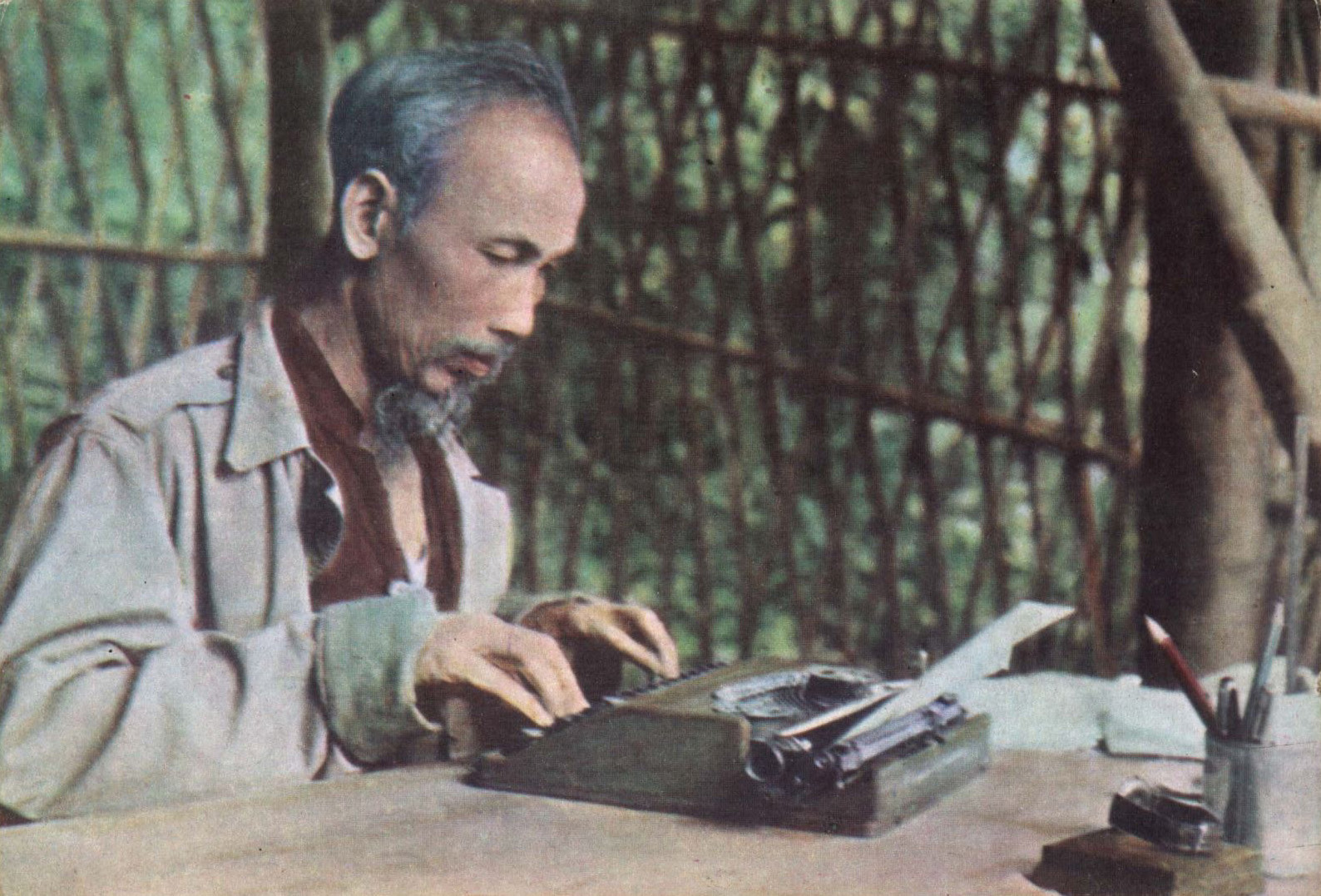 |
| President Ho Chi Minh left behind a huge treasure trove of more than 2,000 articles. Historical documentary photos |
In late 1917, when he returned to France, although his French was not enough to write for the newspaper, with a high determination, President Ho Chi Minh taught himself French and learned journalism. In the early days, he was instructed in journalism by Jean Longuet - Karl Marx's grandson, who worked at the newspaper "Worker's Life". His articles were later published.
"Every time I write an article, I ask myself: Who am I writing for? What is the purpose of writing it? How can I write it so that it is easy for the general public to understand, concise and easy to read?"
From news, articles, and documents with small topics, he wrote articles with large, focused topics. His articles published in left-wing newspapers in France were low-budget newspapers with almost no royalties, but they had great spiritual significance. Therefore, during the day he went to work, at night he participated in rallies, demonstrations, and revolutionary movements, and at night he still sat diligently writing articles.
President Ho Chi Minh first wrote articles in French, then continued in English, Russian, Chinese, and then wrote in his mother tongue, Vietnamese. He once shared: “My experience is this: Every time I write an article, I ask myself: Who is it for? What is it for? How can I write it so that it is easy for the general public to understand, concise and easy to read? When I finish writing, I ask my colleagues to review and correct it for me.”
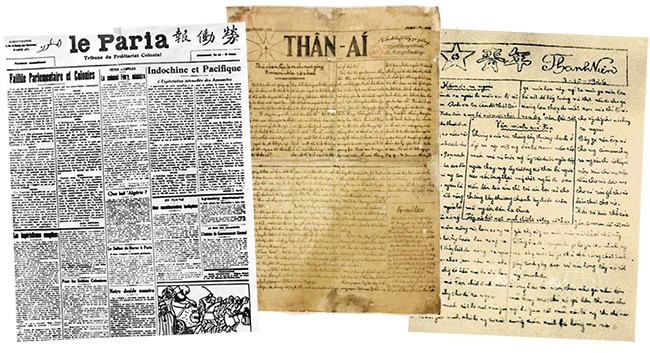 |
| Some newspapers of President Ho Chi Minh: The Miserable, Dear, Youth. Photo archive |
President Ho Chi Minh left behind a huge treasure of more than 2,000 articles. According to statistics, he had more than 170 names, pen names and aliases, of which 2/3 were used by him in his journalistic works. President Ho Chi Minh directly founded 9 newspapers: Nguoi Cung Kho (1922); International Farmer (1924); Thanh Nien (1925); Cong Nong (1925); Linh Kach Menh (1927); Viet Nam Tien Phong (1927); Than Ai (1928); Do (1929); Viet Nam Doc Lap (1941); Cuu Quoc (1942). For Nguoi Cung Kho, he was both the editor-in-chief, cartoonist, photo developer, treasurer, publisher, and newspaper seller...
"The mission of the press is to serve the people, to serve the revolution."
At the 3rd Congress of the Vietnam Journalists Association (September 1962), President Ho Chi Minh pointed out: “Journalists are also revolutionary soldiers. Pens and paper are their sharp weapons” and emphasized “The mission of journalism is to serve the people and the revolution”. Also at this Congress, he frankly criticized the shortcomings of the country's press at that time: "Articles were often too long, "a long line", not suitable for the level and time of the masses...", "Often speaking one-sidedly and sometimes exaggerating achievements, but little or not speaking properly about our difficulties and shortcomings...", "Reporting news hastily, often without caution...", "Lack of balance: News that should be long is written short, news that should be short is written long, news that should be later is put first, news that should be earlier is put later...", "Revealing secrets - sometimes too ridiculous...", "The most serious shortcoming is using too many foreign words and often using them incorrectly...".
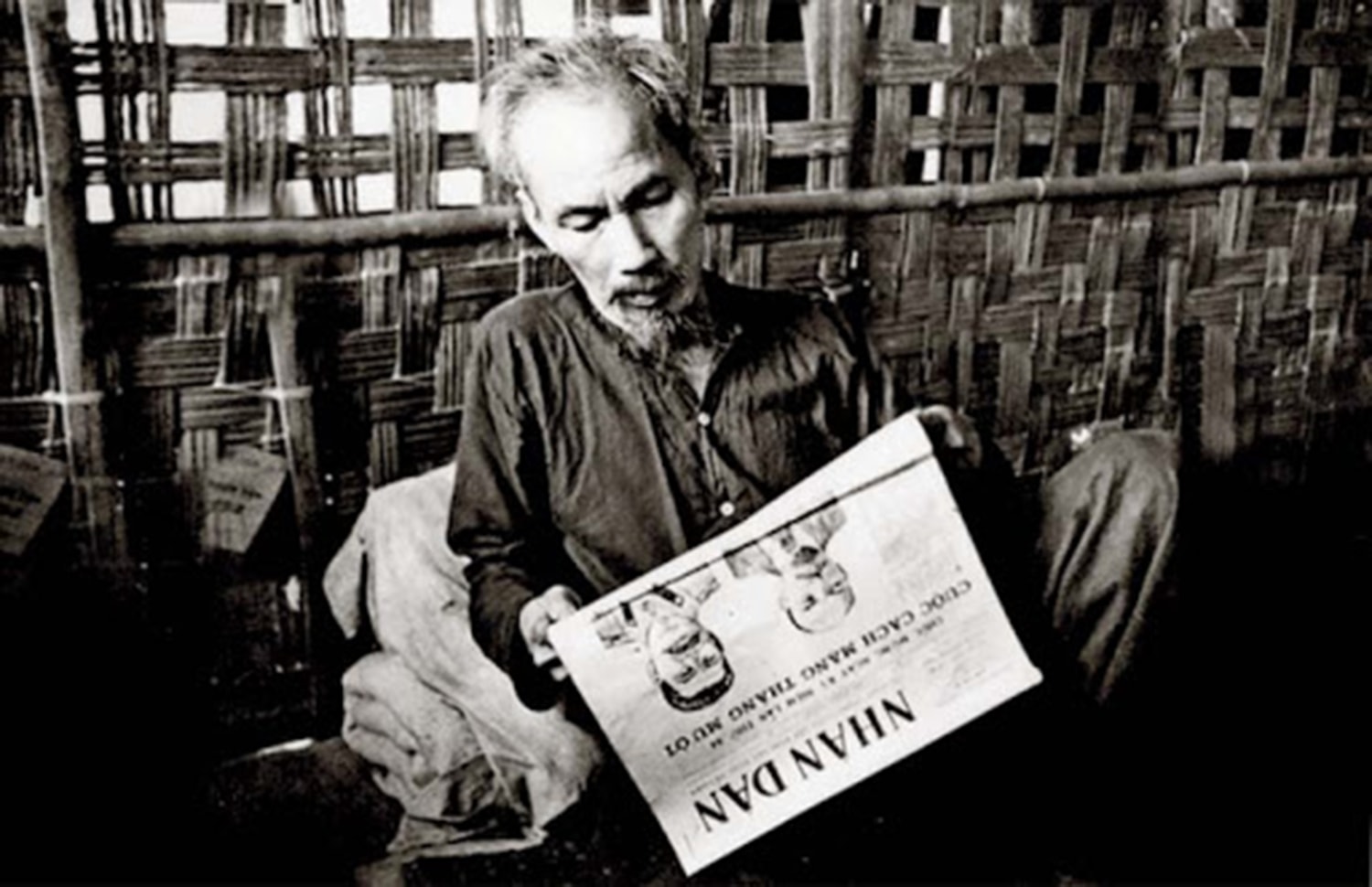 |
| President Ho Chi Minh reading Nhan Dan newspaper. Photo archive |
Therefore, President Ho Chi Minh affirmed: “To fulfill their glorious duty, press cadres need to cultivate revolutionary ethics, strive to improve their ideology, expertise and culture; focus on political study to grasp the Party and Government's guidelines and policies; go deep into reality, go deep into the working masses”. He pointed out: “Our press has an important position in world public opinion. The enemy pays a lot of attention, our friends are very interested in our press. Therefore, journalists must be extremely careful about form, content and writing style”.
Uncle Ho named a newspaper of the capital
Since the liberation of Hanoi (October 10, 1954), the capital's daily newspapers have been named: Hanoi Daily, Hanoi Capital, and Thoi Moi. When the Hanoi City Party Committee and People's Committee had a policy to merge the two newspapers Thu Do and Hanoi Daily, the city's leaders as well as the City Party Committee's Propaganda Department were struggling to find a suitable name for the newspaper. Knowing that, one morning after reading a series of daily newspapers, President Ho Chi Minh held the Thu Do newspaper next to the Hanoi Daily newspaper, placing the two newspapers next to each other and said to the city's leaders: "Here is the name of your newspaper". At that time, Dr. Tran Duy Hung - Chairman of the Hanoi City People's Committee, who directly heard this opinion of his, was very happy, after the two merged newspapers were named: "Hanoi Capital".
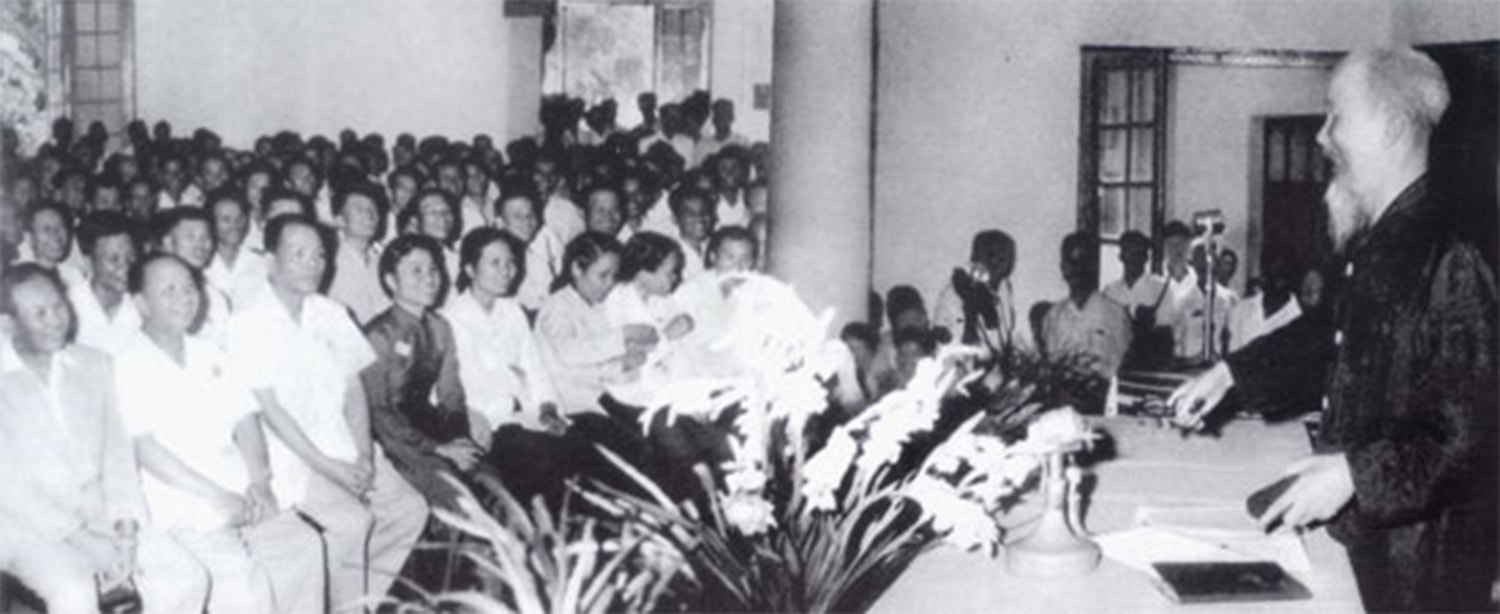 |
| President Ho Chi Minh attended and spoke at the 3rd Congress of Vietnamese Journalists (September 8, 1962). Photo archive |
After being published for a while, the city leaders had a policy of merging the Hanoi Capital and Thoi Moi newspapers (private newspapers, editor-in-chief of Hien Nhan) into one. But people were still wondering how to name the new newspaper? That day, comrade Le Hung, who was in charge of the Hanoi Capital newspaper, came back from a meeting at the Press Department and told his colleagues in the editorial office: "I was so happy, the brothers at the Press Department said that Uncle Ho put the two newspapers Hanoi Capital and Thoi Moi next to each other, covering the words Hanoi Capital and Thoi Moi with his hand. So the newspaper was named Hanoi Moi."

.jpg)
